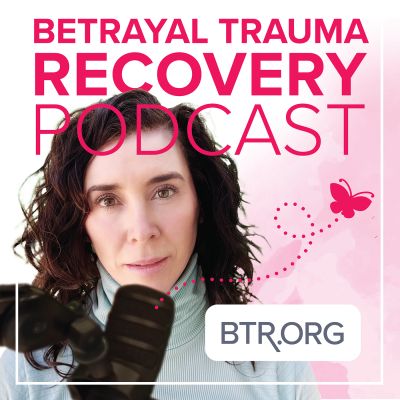btr.org - btr.org has daily, online Group and Individual Sessions for victims of emotional & psychological abuse and sexual coercion. For women experiencing pain, chaos, and isolation due to their husband’s lying, gaslighting, manipulation, porn use, cheating, infidelity, emotional abuse, and narcissistic abuse. Labeling a victim as "codependent" is a form of victim blaming. Pornography addiction / sex addiction are a domestic abuse issue. Narcissistic abuse is not a communication issue. We help women who are married, separated, or divorced heal through establishing emotional safety. If you suspect your husband is a narcissist, a pornography addict, or emotionally abusive, this podcast is for you. Every woman on our team has experienced betrayal trauma first hand. To learn more about Betrayal Trauma Recovery, visit BTR.ORG
https://www.btr.org/podcast/
episode 74: They Blamed ME For The Abuse
Domestic abuse is an umbrella term for the many levels and categories of abuse that partners use to control members of their families.
June, a member of the Betrayal Trauma Recovery community, joins Anne on the BTR podcast to empower other women to find safety as she shares her tragic story of domestic abuse. June, like many women around the world, experiences intense victim-blaming. Learn how she found safety and continues to courageously persevere: listen to the BTR podcast and read the full transcript below for more.
What Does Domestic Abuse Look Like?
It is a common belief that domestic abuse is synonymous with physical battering. While physical abuse is an undeniably damaging form of domestic abuse, there are many other ways that men can abuse women. June shares a glimpse into what domestic abuse looked like in her home:
He would come home and yell and throw things around. He would berate me for how the children were dressed and act very scary. He had left me on the side of the road several times when he would get angry at me in the car. He would just pull over and kick me out. I would be left there for hours in different places, in front of my children who were in the car.
He withdrew money from our bank account, so I couldn’t buy groceries. He was of course very verbally abusive, and also mentally, psychologically, and socially aggressive to me in ways that I couldn’t even recognize. He would also very frequently embarrass me in public situations that we were together and make jokes at my expense. He would demean me.
He was very sexually coercive, trying to get me to do things that I wasn’t comfortable with. The manipulation was really always present.
June, member of the Betrayal Trauma Recovery community
Knowing the Cycle of Abuse Is Important:
I would be so grateful when he would make it right and when he wouldn’t behave those ways. It was a huge relief and so it’s almost like you become accustomed to the love bombing and the apology and the honeymoon period that happens after those abusive situations.
June, member of the Betrayal Trauma Recovery community
The cycle of abuse is as insidious as it is notoriously hard to detect. Understanding the cycle itself may help victims identify the abuse in their relationships:
* The Honeymoon Phase-This is also known as love-bombing, where the abuser hooks the victim with promises of love and safety.
* The Tension-Building Phase-The tension starts to rise; the victim feels like the have to walk on eggshells to avoid confrontation.
* The Explosive Phase-Abusive behavior occurs, the cycle repeats.
Knowledge of Abuse Empowers Victims of Domestic Abuse
It is harrowing to see the lengths that abusers go to in order to manipulate others. The harm caused is so damaging for so many. Informing yourself is paramout. You need to know what you might be anticipating in this process.
Anne Blythe, founder of Betrayal Trauma Recovery
June experienced escalated abuse when she began to set boundaries with her abusive ex-husband. Fortunately, June had researched domestic abuse and was able to put together a safe escape plan that kept herself and her children for a time.
As victims of domestic abuse arm themselves with knowledge, they become empowered to make decisions that will benefit their safety and health.
Victims Of Domestic Abuse Are Often Blamed
I’m painted as this feminist who has gone crazy. I also received some very,
